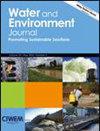Establishment and application of rural domestic sewage treatment evaluation system based on analytic hierarchy process
IF 1.8
4区 环境科学与生态学
Q4 ENVIRONMENTAL SCIENCES
引用次数: 0
Abstract
Although numerous rural domestic sewage treatment facilities are constructed with the aim of improving the rural environment, the actual treatment effect is still difficult to evaluate. In this study, an evaluation system of rural domestic sewage treatment was established based on the analytic hierarchy process (AHP) model and a county in Zhejiang Province was selected as an example for empirical analysis. According to the results, planning issues have the greatest impact on rural sewage treatment, accounting for 56.8%, while equipment issues, personnel issues and management issues account for 27.3%, 9.7% and 6.2%, respectively. Also, the results demonstrated that terminal planning, location selection, treatment process selection and construction design should be paid attention to among the 11 secondary indicators. The establishment of the evaluation system clarifies the different influencing factors and weights during the operation of the completed facilities, which is conducive to the scientific and effective management of sewage treatment.基于层次分析法的农村生活污水处理评价体系的建立与应用
尽管以改善农村环境为目的建设了大量农村生活污水处理设施,但实际处理效果仍难以评估。本研究基于层次分析法(AHP)模型建立了农村生活污水处理评价体系,并以浙江省某县为例进行了实证分析。结果显示,规划问题对农村生活污水处理的影响最大,占 56.8%,设备问题、人员问题和管理问题分别占 27.3%、9.7% 和 6.2%。同时,研究结果表明,在 11 项二级指标中,终端规划、选址、处理工艺选择和施工设计应引起重视。评价体系的建立,明确了建成设施运行过程中的不同影响因素和权重,有利于污水处理管理的科学有效。
本文章由计算机程序翻译,如有差异,请以英文原文为准。
求助全文
约1分钟内获得全文
求助全文
来源期刊

Water and Environment Journal
环境科学-湖沼学
CiteScore
4.80
自引率
0.00%
发文量
67
审稿时长
18-36 weeks
期刊介绍:
Water and Environment Journal is an internationally recognised peer reviewed Journal for the dissemination of innovations and solutions focussed on enhancing water management best practice. Water and Environment Journal is available to over 12,000 institutions with a further 7,000 copies physically distributed to the Chartered Institution of Water and Environmental Management (CIWEM) membership, comprised of environment sector professionals based across the value chain (utilities, consultancy, technology suppliers, regulators, government and NGOs). As such, the journal provides a conduit between academics and practitioners. We therefore particularly encourage contributions focussed at the interface between academia and industry, which deliver industrially impactful applied research underpinned by scientific evidence. We are keen to attract papers on a broad range of subjects including:
-Water and wastewater treatment for agricultural, municipal and industrial applications
-Sludge treatment including processing, storage and management
-Water recycling
-Urban and stormwater management
-Integrated water management strategies
-Water infrastructure and distribution
-Climate change mitigation including management of impacts on agriculture, urban areas and infrastructure
 求助内容:
求助内容: 应助结果提醒方式:
应助结果提醒方式:


